On a recent trip to Long Island in The Bahamas, we observed the heartbreaking amount of plastic waste on local beaches. Our coral reef team found an overwhelming amount of everyday items, like shampoo bottles, medications, and kitchen utensils scattered in the sand.

The stark reality is that most of this trash is not from Long Island. The vast majority of it likely originated from outside of The Bahamas (many had labels in Spanish and French). Indeed, plastic containers, rope, and bottles are known to travel thousands of miles via ocean currents and eventually wash up on beaches all around the world.
“One of the saddest parts is thinking about all of the microplastics that are left behind in the ocean while these containers travel here”, said Dr. Valeria Pizarro, senior coral reef scientist at PIMS.
When plastic waste travels across the globe, it’s broken down by ocean currents, waves, sunlight and chemical reactions, thus creating microplastics. Microplastics can easily be mistaken by fish and other sea life as food. These plastic particles are toxic for sea animals, they can injure their digestive tract and stomach, and can cause animals to starve to death. Microplastics have even been found inside of coral polyps and stuck to their tentacles.

In less than three minutes, our staff collected a conglomerate of something that we all can relate to: shoes and their soles. “Seeing so many soles of shoes on the beach really made me think about my own items, the materials that they are made of, and how long they will exist in this world”, said Meghyn Fountain, a research assistant at the Perry Institute. “I feel even more motivated to practice minimalism, to buy second-hand, and to invest in fixing things when they break instead of buying anew.”

These items stick around. Shoes, for example, take 25-40 years to degrade and rubber soles take 50-80 years break down. Monofilament fishing line, on the other hand, can take 600 years, and plastic bags can take up to 1000 years.
Why the range of time? In different environments, items break down at different rates. Some materials may break down faster in the ocean, and others may not degrade at all. The rate is dependent on the exposure to sunlight, the presence or absence of microorganisms, the amount of oxygen, temperature, and more.
The bottom line is that the world’s ocean connects all of us. And this means that the scope of each and everyone’s impact is great. So, how can you help?
· Limit your use of single-use plastics. This can be as simple as bringing reusable shopping bags to the grocery store and always leaving the house with a reusable water bottle or coffee mug.
· Think LNT (Leave No Trace). Whether heading to the beach or going out for a walk, always be sure to pack up what you bring.
· Dispose to waste properly and always recycle when possible!
· Organize a beach or park clean-up day in your community.
· Each time you buy something, think about the journey that it took to get to you and how this journey will continue when it leaves you.


Build a Coral Reef for the Holidays | PIMS x Partanna
PIMS is partnering with Partanna to build a 100m² carbon-negative reef. Rick Fox is matching donations up to $25k. Help us build a sanctuary for the future.
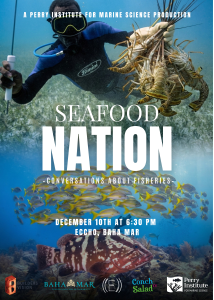
“Seafood Nation” Documentary Premiere Explores the Heart of Bahamian Culture and the Future of Fisheries
NASSAU, The Bahamas | December 5, 2025 – From the bustling stalls of Potter’s Cay to family kitchen tables across the archipelago, seafood is far more than just sustenance in
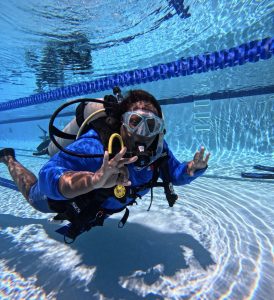
PIMS and Disney Conservation Fund Partner to Train 19 Government Divers
PIMS dive training in Nassau strengthened national coral restoration capacity across government agencies. Bahamas Dive Training Builds National Coral Restoration Capacity Last fall, between the months of September and October,
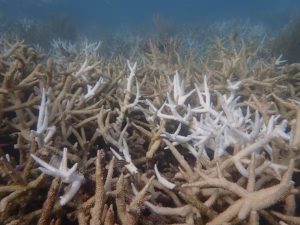
Florida’s Coral Reef Crossed a Line: What Functional Extinction Really Means for Elkhorn and Staghorn Corals
Reefs didn’t just bleach. They functionally vanished in one summer. A new Science study co-authored by researchers from the Perry Institute for Marine Science (PIMS) has found that Florida’s two
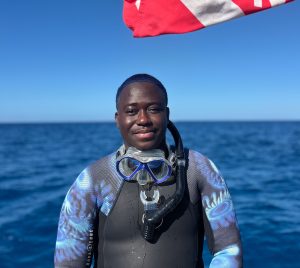
Q&A: Understanding the IDC Course at PIMS with Duran Mitchell
A former aquarist turned coral conservationist, Duran is passionate about understanding how all marine life connects. PIMS & IDC: Empowering New Dive Instructors for Marine Conservation PIMS & IDC: Empowering
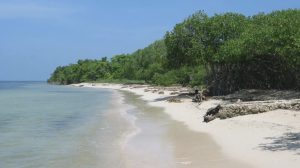
Forbes Shines a Spotlight on Coral Reef Restoration in the Caribbean
When Forbes highlights coral reef restoration, it signals something powerful: the world is paying attention to the urgent fight to protect reefs. And solutions are within reach. Recently, Forbes featured Dr. Valeria


